When the boxes are opened and the votes are counted after polling day on 8 February, the answers to a number of questions will become clear.
From the candidate who will emigrate if he is not elected, to the possible return of the former TD who infamously used the "F" word in a Dáil outburst a decade ago, RTÉ Prime Time reporter Conor McMorrow takes a look at ten questions Election 2020 will answer.
1. Do manifestos mean diddly-squat?

Could this election be remembered as the '1977 Tribute election'? That was the year Jack Lynch promised a raft of election sweeteners in a bid for Fianna Fáil to win that election. Against the odds, it worked.
Over 40 years later political parties have been accused of returning to the "auction politics" of pre-bust elections where they tried to outdo each other with promises of milk and honey for voters.
Economist Dr Stephen Kinsella has warned that the "dramatic escalation" in election promises could lead to "overheating the economy". Another economist, Colm McCarthy, said the current rate of election promises is "utterly insane".
But do election pledges and manifestos really mean anything?
Since May 2017 all political parties signed up to the Sláintecare plan - a ten-year strategy on the future of healthcare in Ireland. Yet the parties have all made very different pledges in the health area. How many of these promises will ever see the light of day?
More significantly, even if promises made during the campaign are made in full sincerity, many of them simply cannot become reality.
Such is the fragmented nature of Irish politics; some sort of coalition arrangement is likely to form the new government. Apart from some red-line issues, the parties that form a government will have to compromise on their election promises and change direction.
This is necessary for coalition partners to find common workable ground in government formation talks. So after the dust settles on Election 2020, will large swathes of the party manifestos mean diddly-squat?
2. Will Longford get a TD of its own?

There were 158 TDs in the 32nd Dáil, in 40 constituencies across 26 counties. But one county found itself without a TD - Longford.
Part of the four-seat Longford-Westmeath constituency, it has had no TD of its own since 2016.
Fianna Fáil's Robert Troy, Fine Gael's Peter Burke, independent Kevin Boxer Moran and Labour's Willie Penrose are all from Westmeath.
This has irked the people of Longford. Also without a senator, it was the only county without an Oireachtas representative of its own.
This scenario has set up the mother of all battles between Fine Gael's Mícheál Carrigy and Fianna Fáil's Joe Flaherty to become the Longford TD.
Will enough Longford people vote for candidates from their own county to ensure the county has a TD of its own again?
3. Will he stay or will he go?
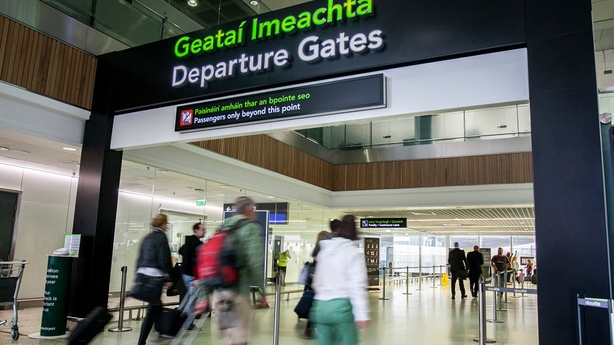
Is Emmet Smith's trip home from Australia a short ‘general election holiday’? Or will it signal a permanent move home? He is the People Before Profit candidate in Cavan-Monaghan.
The 32-year-old construction worker has flown home from Australia to contest the election. He is one of the thousands of people who emigrated during the economic crash.
He says has raised enough funds to pay air fare home to contest on 8 February. A party press statement said: "If elected, he will take up his seat in the Dáil - if not; he will fly back to his job in Australia."
Another candidate in a ‘stay or go’ scenario is Sinn Féin's candidate in Meath East. If councillor Darren O'Rourke manages to unseat one of the three outgoing TDs, he will be heading to Leinster House as a TD.
If he is unsuccessful and his party colleague Matt Carthy takes a seat in Cavan-Monaghan, he could also be heading to Europe. O'Rourke is the first name on the outgoing MEP Carthy's substitutes list.
So if Carthy is elected to the Dáil, O'Rourke could take his European seat in Brussels.
4. 2:1 or 1:2 in Cork North West?
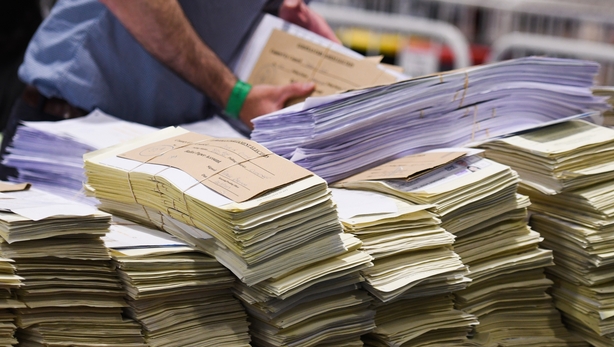
Traditionally viewed as a bellwether constituency, Cork North West has been described as a "straight shoot out" between Fianna Fáil and Fine Gael in this election.
It is likely that this three-seat constituency will return two Fine Gael TDs and one from Fianna Fáil; or two Fianna Fáil TDs and one from Fine Gael.
In 2016 Fianna Fáil got the upper hand here with Aindrias Moynihan and Michael Moynihan winning two seats and Fine Gael's Michael Creed taking the other one.
Former independent councillor John Paul O'Shea was elected for Fine Gael in last year's local elections. He will be contesting on the Fine Gael ticket with Mr Creed here.
It's extremely hard to call this. It is most likely it will deliver a Fianna Fáil and Fine Gael TD ratio of 2:1 or 1:2.
Political apparatchiks in both parties will be keeping a close eye on tallies here when the boxes are opened here on 9 February.
5. Can Sinn Féin hold onto the Ferris seat in Kerry?
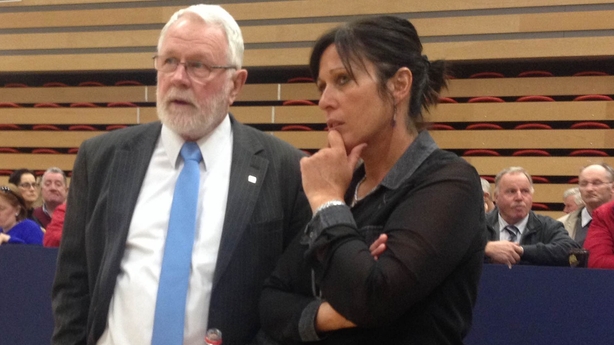
In May 2002, Martin Ferris made electoral history when he took a seat for Sinn Féin in Kerry. He caused a political earthquake by taking former Tánaiste Dick Spring's seat.
Spring had held the seat since 1981 and the Spring family had held a Labour seat in Kerry from 1943.
Dick's nephew Arthur Spring won back the Labour/Spring seat in 2011 but lost it again in 2016. Labour does not have a candidate in Kerry in this election.
Election 2020 will be the first time since 1997 that Martin Ferris' name will not be on the ballot paper in Kerry.
His daughter Toireasa, a councillor since 2003, had been expected to contest this election and hold her father's seat.
But last year she announced that she would not be contesting and signalled her intention to step down from politics.
Tralee-based solicitor Pa Daly, who has been a councillor since 2014, is the Sinn Féin candidate in this election and he will bid to hold onto the seat for the party.
He’s in a battle with Fianna Fáil's Norma Foley. Other Sinn Féin retirees include Gerry Adams, Caoimhghín Ó Caoiláin and Jonathan O’Brien, and the party will face a particular battle to hold Adams’ seat in Louth.
6. Is there a way back to the Dáil for former TDs?
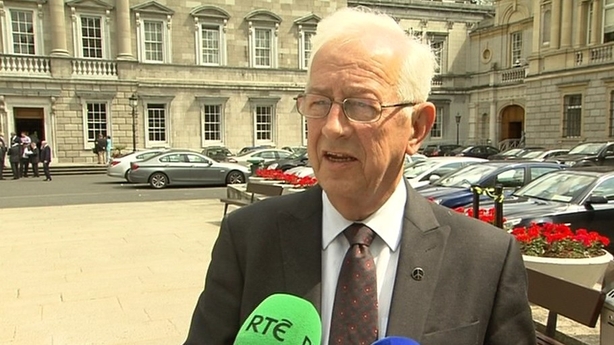
From the former TD who famously said "F**K you deputy Stagg!" (Paul Gogarty) to the man on the receiving end of that insult (Emmet Stagg); a number of former TDs are bidding to make a Dáil comeback on 8 February.
Some TDs who lose their Dáil seats, call it quits and never go back into politics. Others miss Leinster House too much and feel they have unfinished business. Some of the former TDs bidding to make comebacks are certainties. Others less so.
Among those bidding to come back are John Perry (independent and formerly FG); Marian Harkin (independent and formerly an MEP); Joe Behan (independent); Billy Timmins (FG); Michael McNamara (independent and formerly Labour); Joanna Tuffy (Lab), Paul Gogarty (independent and formerly Green), Charlie O’Connor (FF), Mary Hanafin (FF) and Emmet Stagg (Lab).
A group of senators, who have previously been TDs are also contesting. Among them are: Pádraig Mac Lochlainn (SF), Frank Feighan (FG) ,Ged Nash (Lab), Gabrielle McFadden (FG), Jerry Buttimer (FG), Aodhán Ó Ríordáin (Lab).
From former cabinet ministers like Mary Hanafin to Billy Timmins, who is back in the Fine Gael party fold after contesting the last election for Renua, can they make a comeback?
7. Could the stars align for the Social Democrats?
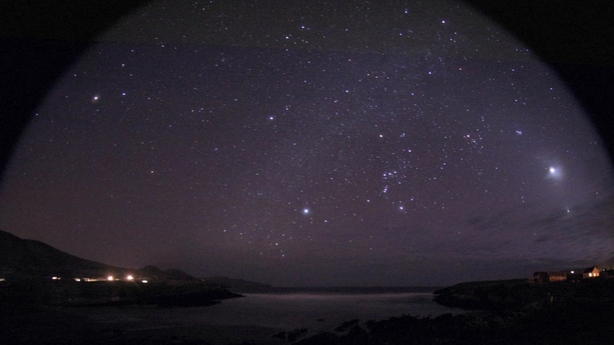
In 2016 the new Social Democrats party went into the election with three outgoing TDs – Roisín Shortall, Catherine Murphy and Stephen Donnelly. Following the departure of Mr Donnelly, the party fights this election with two outgoing TDs. Some commentators believe they will not add to this total on 8 February.
However a number of retirements may have changed the Social Democrats’ prospects. Could these retirements help the stars align for the party?
In Dublin Central, independent TD Maureen O’Sullivan has retired from politics. This frees up space in this four-seater for Social Democrats’ candidate councillor Gary Gannon to win a seat.
He came fourth in 2016 when this was a three-seat constituency. Now it has an extra seat so this must boost his chances.
But Green candidate Neasa Hourigan (daughter of Michael, a long-serving and now retired Fine Gael councillor in Limerick) and Fianna Fáil’s Mary Fitzpatrick will also be battling for the remaining two seats.
Fine Gael’s Paschal Donohoe and Sinn Féin’s Mary Lou McDonald are bankers.
Over in Dublin Bay North, independent TDs Finian McGrath and Tommy Broughan have also bowed out of politics. This gives Social Democrats candidate Cian O’Callaghan a better chance in that five-seat constituency.
The Social Democrats have also got hopes for Niall Ó Tuathail in Galway West, Jennifer Whitmore in Wicklow (who topped the poll in Greystones in last year’s local elections), and Holly Cairns in Cork South West.
In what may be an election first, Ms Cairns is fighting this election against her partner – Fianna Fáil candidate Christopher O’Sullivan.
The Social Democrats party is expected to hold its two existing seats.O n a very good day, if it were to add Mr Gannon and Mr O’Callaghan to that, it would have four TDs.
Could an enlarged group of Social Democrat TDs become an attractive group when it comes to government formation?
8. Will Shay Brennan beat the odds and finally play senior hurling?

Fine Gael leader Leo Varadkar conceded early on in this campaign that in hurling terms his party was three points behind at half-time - but he insisted it can be turned around.
He’s not the first to use hurling parlance in the political field. When the Greens entered Government Buildings in 2007, the late Fianna Fáil minister Seamus Brennan famously greeted party leader John Gormley with the immortal words: "You are playing senior hurling now lads."
Two years later after Seamus’ passed away, his son Shay unsuccessfully contested the Dublin South by-election to fill his father’s Dáil seat.
He was subsequently elected a councillor in the 2014 and 2019 local elections. Fianna Fáil has not held a seat in the Dublin Rathdown (formerly Dublin South) constituency since 2008.
Party headquarters have backed two potential general election candidates in recent years. In 2017, Justin McAleese – gay rights campaigner and son of former President Mary McAleese – was appointed a Fianna Fáil constituency representative in the area with a view to running for the Dáil.
In late 2018 he announced he would not stand as a candidate due to work commitments.
In last year’s local elections, the former head of the Fianna Fáil press office Olivia Buckley contested with a view to a later Dáil run. But she failed to get elected.
All the while, Shay Brennan has been working away as a councillor in the area. With Fianna Fáil returning to the lead in several opinion polls, could Seamus Brennan’s son win a Dáil seat and play senior hurling some 13 years after his father’s famous comments to the Green Party?
9. Do pre-election promises of a Seanad seat mean anything?
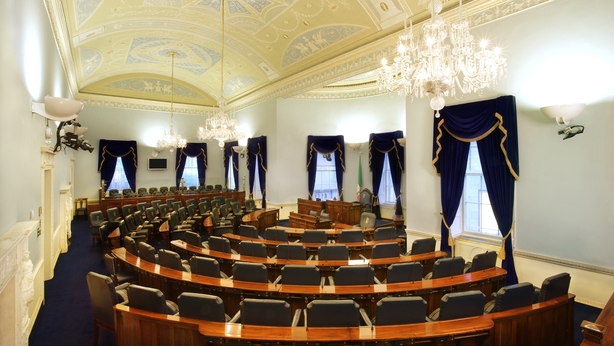
There are over 500 candidates in Election 2020. There is plenty of anecdotal evidence to suggest that a large bunch of candidates are running in this election because they have been promised a Seanad seat afterwards.
There are just 60 seats in Seanad Éireann. Only 11 of them are in the gift of the government to be shared out as Taoiseach’s Nominees.
The remaining 49 are filled through the complicated Seanad electoral panel system. There are a lot of candidates in the general election race who are under the impression their party will "look after them" if they don’t win a Dáil seat.
As there are very few Seanad seats going, will some of these candidates get a rude awakening and find out that Seanad seat promises can be hollow?
10. Do controversial comments on immigration pay at the polls?
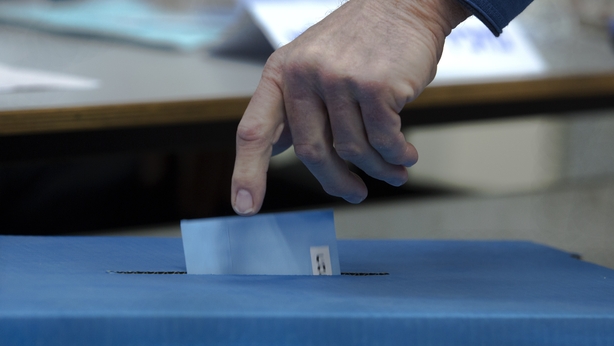
In a new departure for Irish politics, some politicians and election candidates have made controversial comments about immigration in recent times.
Last September, independent Galway TD Noel Grealish was criticised for comments he made about plans for a direct provision centre on the site of a former hotel in Oughterard.
He reportedly said the people who might possibly be housed in the former Gateway Hotel would be African economic migrants, whom he described as "spongers" off the State.
In November, a Fine Gael by-election candidate Verona Murphy apologised after claiming that some asylum seekers coming to Ireland have to be "deprogrammed" as they "carry angst" and may have been "infiltrated by ISIS".
Ms Murphy, who is standing as an independent in Wexford, later apologised.
Independent candidate Peter Casey was criticised for comments made during last year’s European elections in a newspaper in which he said there were "freeloaders" in the direct provision system, who he said should be "put back on the plane".
As all three candidates contest Election 2020 – along with others who have expressed similar views – how will such controversial comments be received by the electorate?






